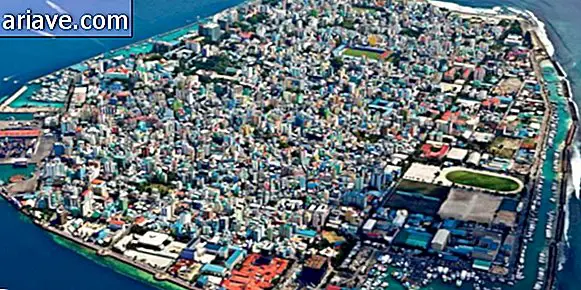Learn the story of the Japanese diplomat who saved 40,000 people from death
The holocaust did not happen in complete secrecy, but the way the news was handled made many people aware of the facts only years later. Those who knew and could afford to help those people did not always do something, as this would have many consequences for their lives.
In the midst of so much confusion and nonsense, however, some people didn't care and risked themselves for a greater good: life. Japanese diplomat Chiune Sugihara was one of them, saving thousands of Jews who had their destiny mapped out: death in a concentration camp.
Visionary since youth
In a society where the “normal” was always prized, Chiune Sugihara showed early on that his ideals were out of step. The good grades obtained in high school made his father demand that he study medicine, but such a profession was not in Sugihara's plans. He even enrolled in the entrance exam and attended the exam; however, it just left the sheet completely blank.

His desire to study languages and travel the world led him to become Japan's ambassador to Lithuania in 1939. Upon arrival, he was confronted with a large number of Jews fleeing from Poland, which was already occupied by Germany. At three different times, Sugihara tried to apply for permission to issue refugee visas, but the response from her country's Ministry was always negative.
Disagreeing with the situation, he talked to his wife and children and decided that he would endanger his career, challenging the Japanese government. While the authorities saw only crowds of desperate foreigners seeking refuge, he saw humans trying to survive - so he did his best to make that happen.
Pens on fire
At the time, all kinds of documents were handwritten, and Sugihara had to spend a lot of ink to issue refugee visas. The work went on day and night, generating in a 24-hour period more visas than his government would allow for a full month. The embassy was closed in September 1940, but that did not prevent him from continuing his work.

Even if visas were not authorized by Japan, having the embassy signature and seal made it possible for refugees to flee without major problems. Approximately 6, 000 visas were issued by Sugihara - some families even obtained a document for each member. The final destination was not always Japan, but in total over 40, 000 people were saved thanks to Chiune's dedication.

Before returning to his homeland, he still left all the necessary material for making visas with refugees in Lithuania, making it possible to issue more documents. After the war, he was fired, his 7-year-old son died, and he had to do heavy manual labor to survive.
Deserved Recognition
Recognition for his heroic act came only in 1968, when Jew Yehoshua Nishri, one of the people who managed to escape thanks to Sugihara's visas, identified the former diplomat. In interviews he gave after his story was revealed, Chiune never spoke much about wartime. Not even close people knew what he had done in Europe.

In an interview in 1977, when asked why he had to forge so many visas, the former diplomat replied that he warned the Foreign Ministry that this was a humanitarian issue. “I didn't mind losing my job. Anyone else would have done the same thing if I were in my shoes. ”
Today, we know that many people had a clear knowledge of what was happening in Germany and, even with the power to change the fate of some people, preferred to close their eyes to the tragedy. Such a situation clearly exposes one's values, showing that while many drown in their own greed, others dedicate their lives to preventing injustice from being committed.
***
Do you know the Mega Curioso newsletter? Weekly, we produce exclusive content for lovers of the biggest curiosities and bizarres of this big world! Register your email and do not miss this way to keep in touch!











